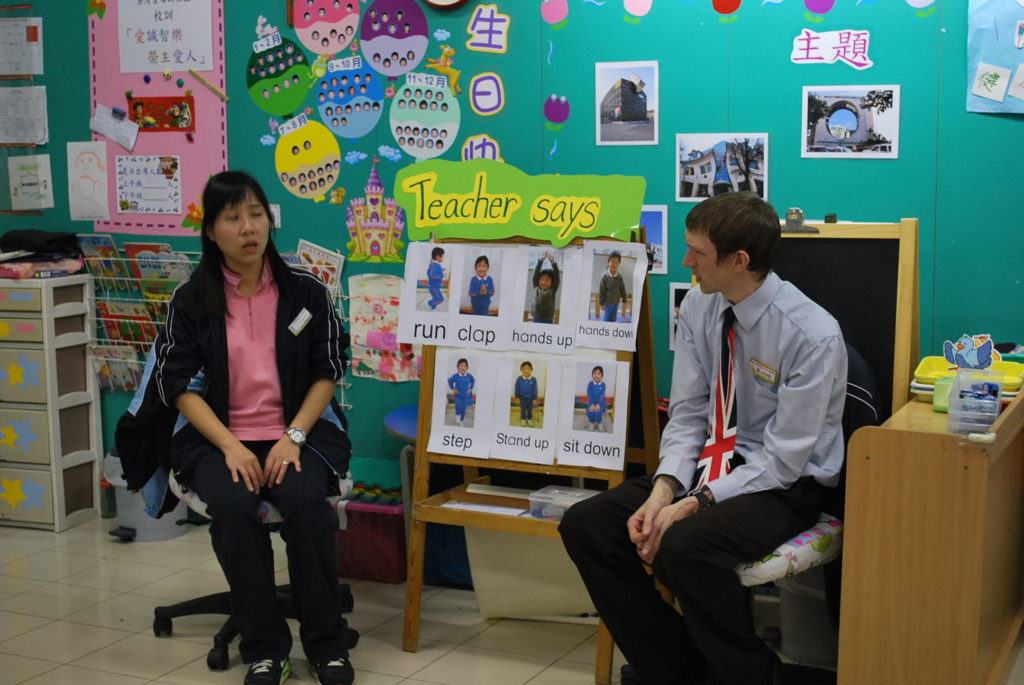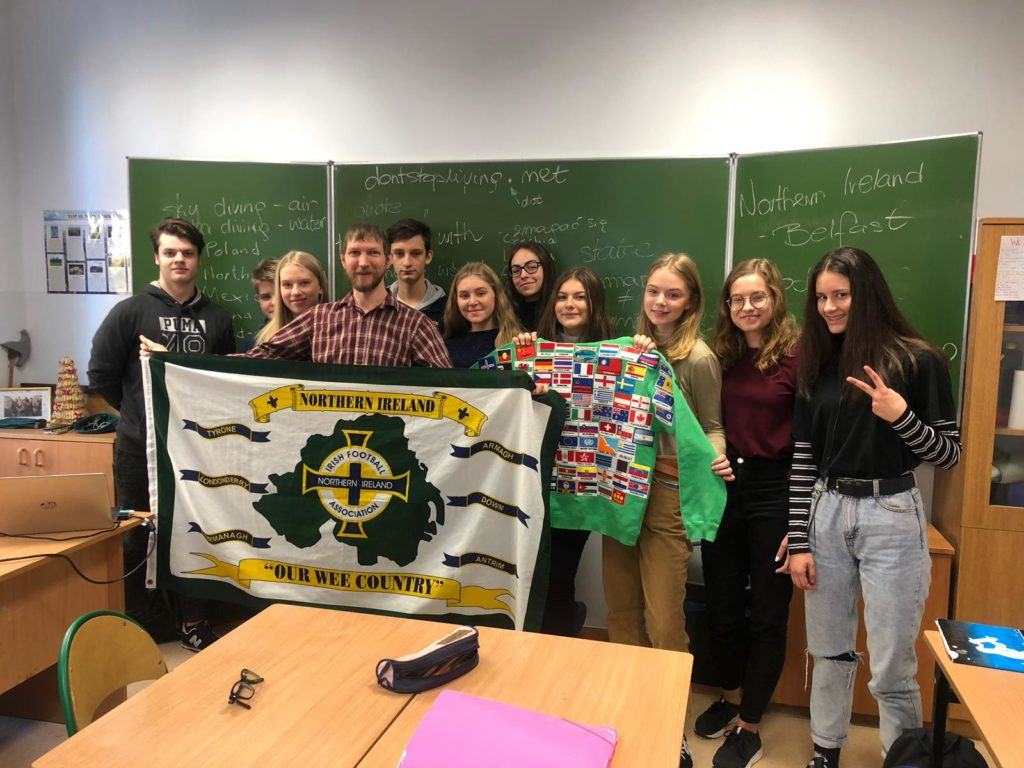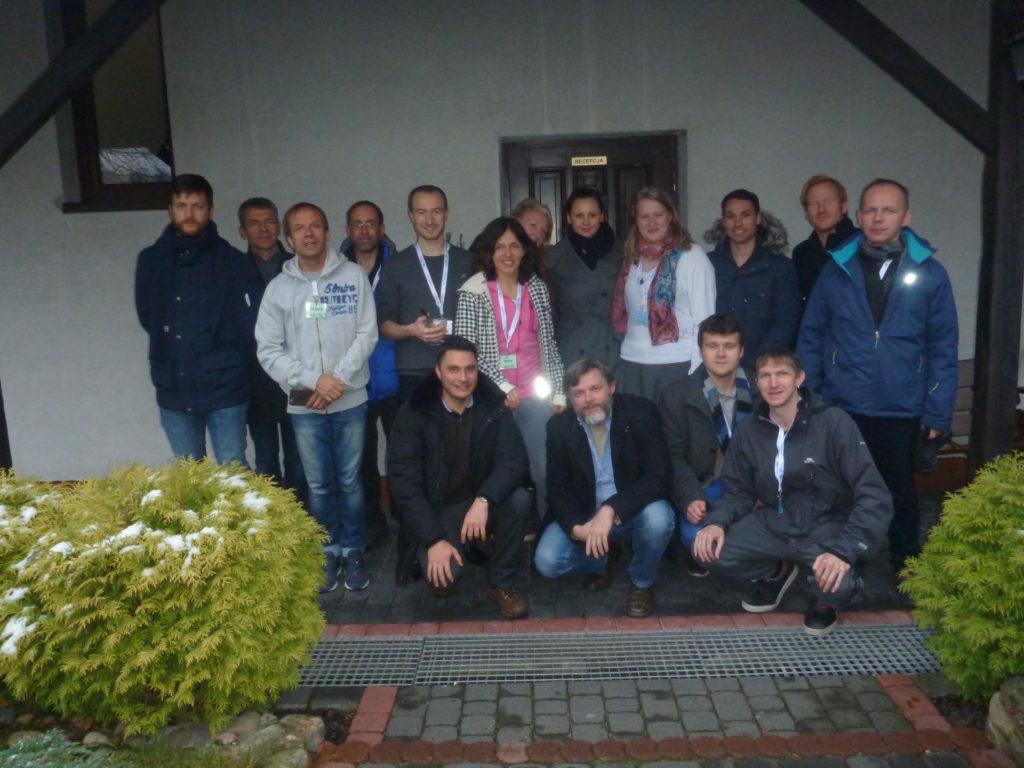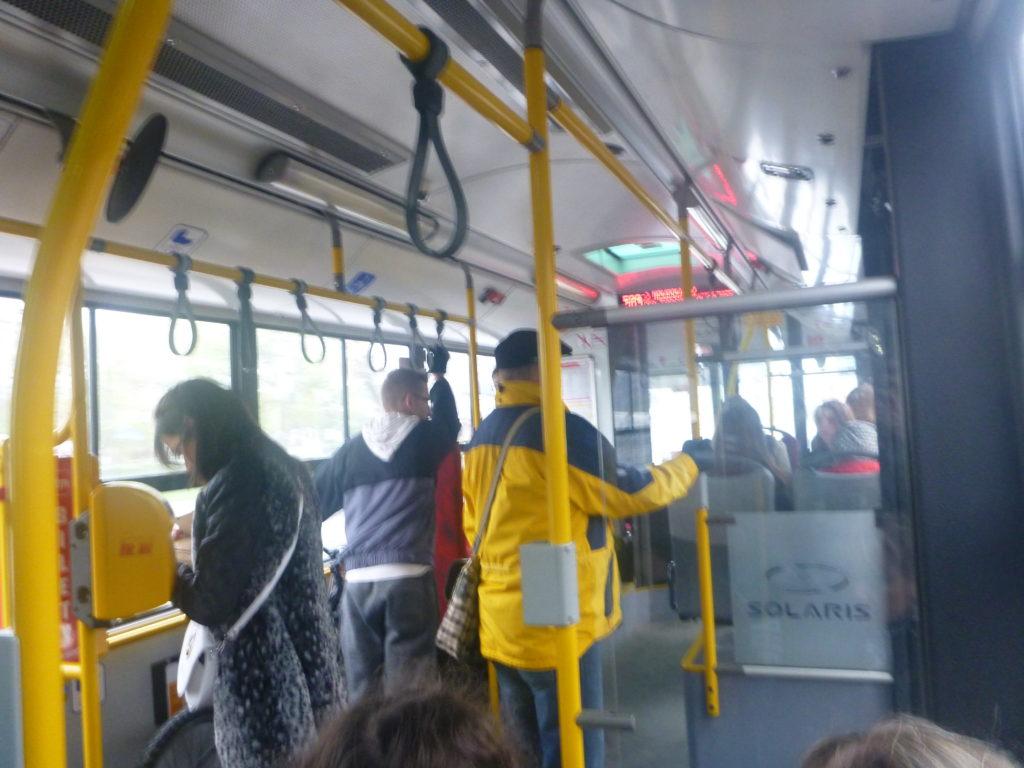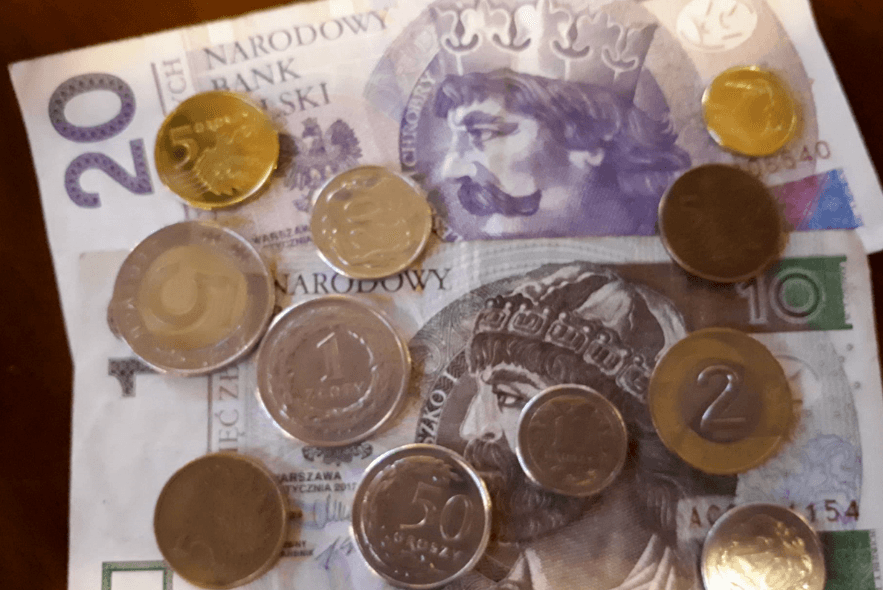Firstly, please note that this article is intended to help people learning Englishand is definitely not a criticism of Polish
people or indeed their learning of English!! Polish people have one of the best levels of English (as a second language) in the world in my opinion. They are miles ahead of countries such as India, France, Italy, Kyrgyzstan, Germany etc. But I do hope that this article might help improve them to be even better than they currently are. Mistakes are still made.
At school, I excelled in English. Poetry, reading, literature, and mostly writing. I hated the foreign languages we were forced to learn – German and French. I probably hated them because the teachers were local and not from France or Germany. I later backpacked in France and Germany, soon realising how useless my use of their languages was – I had learnt words rather than sentences or pronunciation. I later studied Spanish in Uruguay, Cantonese in the Kong and Polish in Poland. Despite failing at Chinese, I can still have basic conversations in Polish and Spanish, and cite them as my second and third languages. As a rebellious teenager however, I never thought that one day, I’d get a qualification as a teacher, or become a native English teacher. Being a footballer, a rock star or a writer were my hat-trick of dreams. Teaching wasn’t.
But the magical transformation happened to me at a house party in Hong Kong in Summer 2011 when I was offered a job teaching English. At the time I had no qualifications but I certainly had experience of travelling, chatting to people in English, writing in English (books, blogs, articles etc.) and correcting locals mistakes, in the centuric list of countries I had backpacked through. Since then I have taught English to people aged 3 to 75! Yes, a huge gap in ages. I have taught privately in Hong Kong, China and Poland. I have taught in kindergartens, primary schools, secondary school and to businesses (adults) around the world. I have done this face to face, online and also worked as a copywriter, editor and translator.
I still teach English in Poland, but not full-time as my lifestyle is a mix of blogging, writing, teaching and travelling. The fact I have a lot of Polish friends and have taught English in Poland and toured every province (Vovovodeship) of Poland means that I feel I know what needs improving. I know what mistakes are common amongst Polish learners and I try to correct them, both professionally and socially. I want this to be the third best English speaking country (after England and Northern Ireland).
Before I launch into this, please also note that although I am officially a Native English Speaker, this was not my choice. I believe only true Native English Speakers come from England, the home of the language. Even Scotland, Wales, Australia and United States of America are not Native English to me. I can write about this more sometime but basically I’m a Northern Irishnationalist and believe that our first two languages at school and in the country should be Irish Gaelic and Ulster Scots. English should be my third language. But it’s sadly not. English, unfortunately is the main language that I speak, write and work in. I just wish it wasn’t as the language is plastered everywhere I go around the world. Remember even DickMonald’s got it wrong, because their original catchphrase “I’m Lovin’ It” has an arguable 1-8 mistakes/ changes to it! Even an Amsterdam t-shirt got it wrong.
I’m Lovin’ It I’m Loving It (remove “ing”)
I’m Lovin’ It I’m Loving It I’m Love It (add “e”)
I’m Lovin’ It I’m Loving It I’m Love It I’ Love It (remove “m”)
I’m Lovin’ It I’m Loving It I’m Love It I’ Love It I Love It (remove ” ‘ “)
I’m Lovin’ It I’m Loving It I’m Love It I’ Love It I Love It I Love This (replace “it” with “this”)
Spread yer legs love…
So, these are some of the biggest mistakes that I believe Polish people make when speaking English.
1. Them, They and Their
Somewhere in history, Polish people were told that “them, their or they” must be plural. No no no. This is a weird myth. There are two uses of these pronouns, as clearly shown by Cambridge Dictionary.
They are just pronouns we normally use when referring to a person or people who are not usually present. They can be singular or plural but they take the form of plural most of the time and also (unfortunately for learners) they use plurals forms of verbs…
Singular example.
Ania – I went to the doctor today.
Ola – What did they say?
Ania – They gave me pills and now I am taking them. I took their advice.
Here the doctor is one person (they), the pills are one item (them) and the advice is one piece of advice (their). No plural. We also don’t know if the doctor is a man or woman, and we don’t care so the gender should always be neutral, we use the word “they”.
What’s your boss doing for their birthday?
My sister is organising a party for them.
Did you speak to them about it?
Yes I spoke to them last night.
2.Communication
Polish mistake: The communication was bad today.
Correct English: The public transport was bad today.
False friends are a massive subject for errors – Communication in English means speaking, talking, communicating, chatting, emailing, calling, phoning, meeting to talk and so on. Communication does NOT and never will mean transport or transportation. This needs to be taught to Polish people. So many Polish people use phrases such as “the communication was bad”, when they are talking about trams, trains, buses, metro etc.!! No no no no no.
Transport or transportation is ONLY that. In a town or city we normally call it public transport if it is organised by the government. The confusion is caused by two words, one in each of the Polish and English languages. In Polish, komunikacja means public transport. In English, the verb to commute means to travel (normally within a city, or on a short trip, and often to work or study).
Verbs to note that are related to communication:
To communicate
To talk
To chat
To speak
To call
To ring
To text
To email
To phone
To telephone
To meet
To message
Verbs to note that are related to public transport:
To travel
To commute
To transport
To hop on
To catch
To get
To take
To grab
To go by
Indeed the word commute could be the one to blame since it shares the first 5 letters of the verb to communicate, but don’t confuse them.
3.Money is singular, monies is plural
Polish mistake: Money are useful.
Correct English: Money is useful. Monies are useful.
Again, somewhere in history, the Polish were taught that the word “money” (an important word of course) is plural. It’s not. £1 is money. One cent is money. Two cents is money. It’s all money. It’s all singular.
The plural of money is monies! It is used to mean you have Dollars, Euros, Pounds, Zlotych etc. – i.e. multiple monies.
4.Cities and Countries rarely have articles!
Polish mistake: I live in the Warsaw. I went to the Italy.
Correct English: I live in Warszawa. I went to Italy.
The myth that English is easy is dispelled by the magical misuse of articles. Forget what you were taught at school, the rules are not strict and often there are no rules. You just need to learn them. Island countries or non-geographic adjective countries often use “the” –
I live in the UK.
I live in the United Arab Emirates.
I live in the Seychelles.
I live in the Faroe Islands.
5.Vowels don’t have to be preceded by “an”.
Check these examples:
An apple
An egg
An ice cream
An orange
An uncle
A one
An office
A home
An hour
A Ukrainian
An Uzbek
A university
An uncle
5.Everyone, somebody, nobody are singular
Polish mistakes: Everybody are happy. Nobody are coming.
Correct English: Everybody is happy. Nobody is coming.
6.Top Means Any Clothes Top
I hear Polish girls telling me that if they are wearing a “top” it is only one specific style. It’s NOT. It’s any top that covers your chest/torso from the waist up.
7.He, She, It verb use – the third person, place or thing
Polish mistake: He go to the shop. She were angry.
Correct English: He goes to the shop. She was angry.
The third person form – he, she and it is different from the first and second person form in present simple tense.
8.Unneeded “S”
In contrast to the “money” mistake, Polish people often add a phantom “s” to words that ordinarily don’t have a plural form. Words such as knowledge, wisdom, advice, information etc. These do not have an “s” unless you are being deliberately ironic, poetic or creatively writing them.
9.The mis-pronounced French words
The letter “t” and “d” at the end of French words is just not pronounced in English. It’s alwasy silent. These French words are pronounced the same as the French would…
Rapport
Ambience
Ballet
Pernod
Debut
Croissant
Ricochet
Bouquet
Gourmet
Duvet
Giroud
cul de sac
rendezvous
10.OUGH
If you want to learn English, forget phonetics and phonics! The four letters OUGH have about 10 different pronunciations…in each of these words, the sound of “ough” is different…
– Cough
– Rough
– Bough
– Though
– Thought
– Through
– Thorough
– Middlesbrough
– Peterborough
11. Silent letters
– Hour
– Whole
– Debt
– Doubt
– Soften
– Fasten
– Knee
– Knight
– Knit
– Know
– Knife
“Kn” at the start of a word is usually pronounced more like an “N”. As always, there are a few exceptions, Evil Knievel being one.
12. Randomly adding the word “to”.
Polish mistakes –
– I phoned to him
– I emailed to him
– Don’t call to me
– Don’t write me
Correct English –
– I phoned him
– I emailed him
– Don’t call me
– Don’t write to me
13.Fake Plurals – door/doors
Polish Mistakes – your hairs are nice, she has a lot of advices.
Correct English – your hair is nice, she has a lot of advice.
Polish Mistakes – I opened the doors (it was only ONE door).
Correct English – I opened the door.
Hairs, advices, informations, knowledges, wisdoms, experiences do not usually have a plural.
Door/doors is confused as in Polish, one door is actually plural.
14.The Whole “Countable / Uncountable” Excrement
I simply hate the countable / uncountable debate for one simple reason: we can count everything!! Whoever invented the countable / uncountable idea was a buck eejit! Everything can be counted. If it can’t be counted, it doesn’t exist!
I drink water.
I drink a water.
I drink the water.
I drink one water.
I drink some water.
I drink two waters.
I drink ten waters.
I drink your water.
I drink 500 ml of water.
I drink fizzy water.
I drink one bottle of water.
All of those are correct!
15.The name of the country is Germany. Not German.
Polish mistake – Last week I was in German.
Correct English – Last week I was in Germany.
16.Outlet
Polish mistake – Only clothes are sold in outlets.
Correct English – Everything can be sold in outlets.
Outlet in English is ANY shop or place that sells things! I heard Polish people telling me it is only a shop for old or cheap clothes. No no no! McDonald’s is an outlet. Your local flower shop is an outlet!
However, outlet has multiple meaning in English…
outlet **
rzeczownik
1.ujście (np. emocji) [policzalny]
I use playing video games as my emotion outlet. (Korzystam z grania w gry wideo jako ujścia dla emocji.)
2.punkt sprzedaży oficjalnie [policzalny]
The company has opened a new outlet in the city. (Firma otworzyła nowy punkt sprzedaży w mieście.)
3.punkt sprzedaży po niższych cenach [policzalny]
I buy most of my clothes at outlets. (Kupuję większość moich ubrań w punktach sprzedaży po niskich cenach.)
4.odpływ (np. ze zlewu, z wanny) [policzalny]
The shower outlet is clogged. (Odpływ prysznica jest zatkany.)
5.gniazdko elektryczne
17.One hundred AND fifty!!
150 the number is pronounced and spoken as “one hundred and fifty”! Do not skip the word “and” as then the number becomes unclear and mistakes will be made. “one fifty” and “one hundred fifty” are wrong.
205 the number is pronounced and spoken as “two hundred and five”! Do not skip the word “and” as then the number becomes unclear and mistakes will be made. “two five” and “two hundred five” are wrong. If you really need clarity, “two zero five” is acceptable but even that could be three solitary digits rather than two hundred and five.
18.Infestation – the rats are here!!!
Polish mistake – Our company had a great infestation.
Correct English – Our company had a great investment.
Anyone working in banking needs to learn that the word infestation means rats or insects are coming!! Do not confuse investment with infestation!
infestation
rzeczownik
plaga, zaraza (insekty atakujące rośliny) atak zarazy
investment
rzeczownik
inwestycja
19.Stories / Histories
Polish mistake – My friend told me lots of histories.
Correct English – My friend told me lots of stories
History is the past – anything that happened. But a story is anything anytime. We don’t tell histories, we tell stories.
I hope this helps you all – these are some mistakes I have noticed from living in Poland, working in Poland, teaching in Poland, backpacking in Poland and chatting to Polish people in Poland and abroad!
I am still available for hire on Native Speaker Poland and you can see the companies I have worked with on this link.
Good luck!
“Happy people have no stories” – Therapy?


